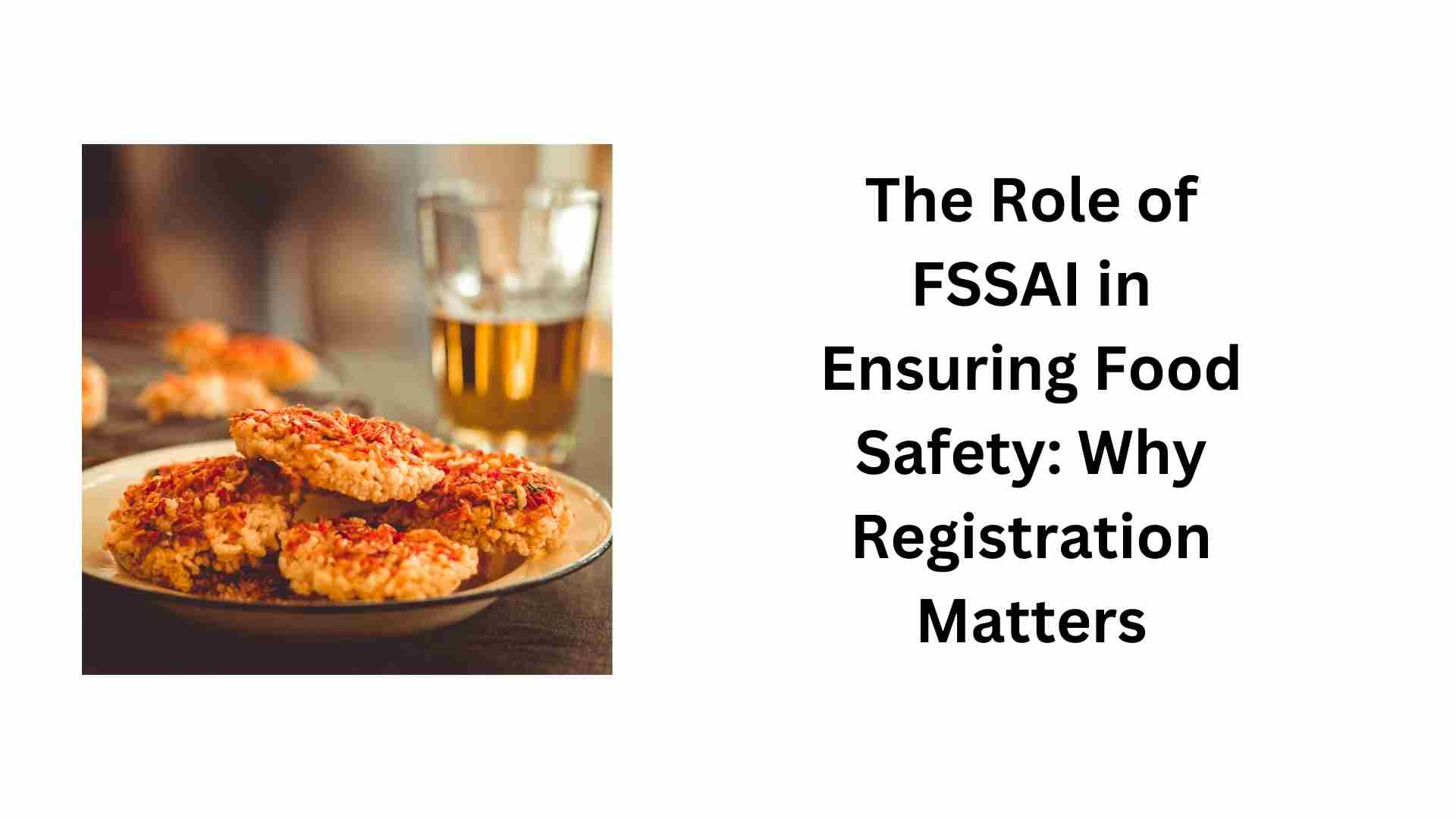The Food Safety and Standards Authority of India (FSSAI) plays a pivotal role in safeguarding the health of millions of Indians by regulating the food industry. One of its fundamental mandates is to ensure that food products meet the highest standards of safety and quality. Central to this mission is the requirement for food businesses to register with the FSSAI. This registration process serves as a crucial step in fostering accountability, transparency, and adherence to regulatory norms within the food industry. In this article, we delve into the significance of FSSAI Registration and why it matters in ensuring food safety for consumers across India.
Legal Compliance:
Registration with the FSSAI is mandatory for all food businesses operating in India. By registering, businesses demonstrate their commitment to complying with the regulatory requirements laid down by the authority. This legal compliance is essential for maintaining the integrity of the food supply chain and protecting consumer interests.
Quality Assurance:
FSSAI registration involves a thorough scrutiny of the food business’s premises, manufacturing practices, and quality control measures. This scrutiny helps to ensure that food products are manufactured, stored, and handled under hygienic conditions, thereby minimizing the risk of contamination and adulteration. By adhering to FSSAI standards, businesses can instill confidence in consumers regarding the safety and quality of their products.
Consumer Protection:
The primary objective of FSSAI registration is to safeguard the health and interests of consumers. By regulating food businesses and enforcing stringent safety standards, the FSSAI helps to mitigate the risks associated with consuming unsafe or substandard food products. Consumers can trust that FSSAI-registered businesses are committed to upholding the highest standards of food safety and hygiene.
Market Credibility:
FSSAI registration lends credibility to food businesses in the marketplace. It serves as a badge of trust, signaling to consumers, retailers, and other stakeholders that the registered business operates in accordance with established safety protocols. This credibility can be a significant competitive advantage, especially in an industry where consumer trust is paramount.
Facilitation of Traceability:
FSSAI registration facilitates traceability in the food supply chain. Registered businesses are required to maintain detailed records of their ingredients, production processes, and distribution channels. This traceability not only enables swift and targeted recalls in the event of food safety incidents but also fosters accountability and transparency across the supply chain.
Regulatory Oversight:
FSSAI registration places food businesses under the regulatory oversight of the authority. This means that registered entities are subject to periodic inspections and audits to verify compliance with safety and quality standards. Through these regulatory mechanisms, the FSSAI can identify and address any lapses or deficiencies in food safety practices, thereby bolstering overall industry standards and protecting public health.
Capacity Building and Training:
As part of the registration process, the FSSAI often provides guidance, training, and capacity-building initiatives to food businesses. These programs aim to enhance the understanding of food safety principles, good manufacturing practices (GMP), and hazard analysis critical control points (HACCP) among industry stakeholders. By equipping food businesses with the knowledge and skills necessary to maintain high standards of hygiene and safety, the FSSAI contributes to the continuous improvement of the food industry’s practices.
Promotion of Innovation and Compliance:
FSSAI registration encourages innovation and compliance within the food industry. By setting clear standards and guidelines, the authority creates a level playing field where businesses are incentivized to invest in research, development, and technology adoption to meet regulatory requirements. This emphasis on innovation not only drives improvements in food safety practices but also fosters competitiveness and growth in the sector.
Global Market Access:
FSSAI registration is often a prerequisite for accessing international markets. Many countries and trading partners require evidence of compliance with food safety standards as a condition for importing food products. By obtaining FSSAI registration, Indian food businesses can demonstrate their commitment to meeting global benchmarks, thereby enhancing their competitiveness and expanding their export opportunities.
Note: You can also read FSSAI license Renewal in India
Public Awareness and Education:
FSSAI registration serves as a platform for raising public awareness about food safety issues. Through its communication channels and outreach initiatives, the authority educates consumers about the importance of purchasing food products from FSSAI-registered businesses. This awareness-building effort empowers consumers to make informed choices and encourages them to prioritize safety and quality when selecting food items.
Enforcement of Penalties and Sanctions:
In addition to promoting compliance, FSSAI registration enables the authority to enforce penalties and sanctions against non-compliant entities. Businesses found to be in violation of food safety regulations may face fines, license suspension, or even prosecution under the law. This enforcement mechanism acts as a deterrent against negligent or unscrupulous practices, thereby upholding the integrity of the food supply chain and protecting public health.
Conclusion
FSSAI registration plays a crucial role in ensuring food safety and quality in India. By requiring food businesses to register and adhere to regulatory standards, the FSSAI promotes transparency, accountability, and consumer trust within the food industry. It is imperative for all food businesses to recognize the importance of FSSAI registration and actively engage in compliance efforts to contribute to a safer and healthier food environment for all.





